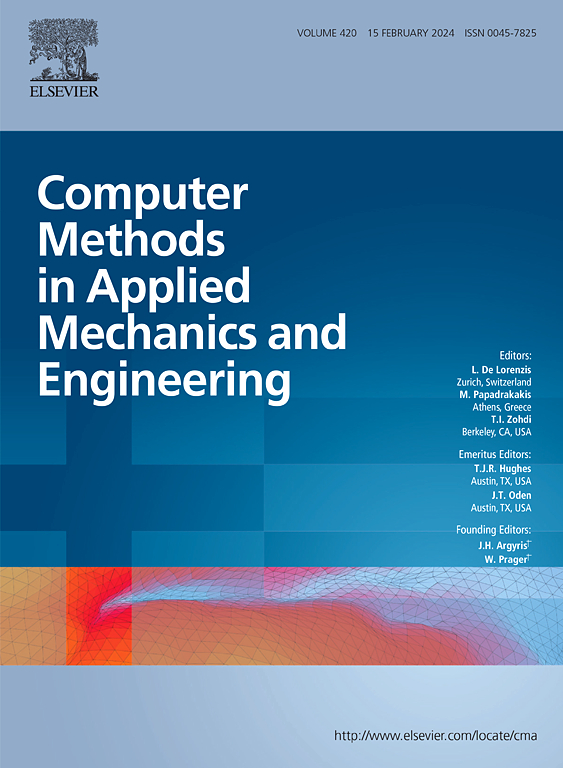A novel global prediction framework for multi-response models in reliability engineering using adaptive sampling and active subspace methods
IF 7.3
1区 工程技术
Q1 ENGINEERING, MULTIDISCIPLINARY
Computer Methods in Applied Mechanics and Engineering
Pub Date : 2024-11-05
DOI:10.1016/j.cma.2024.117506
引用次数: 0
Abstract
The computational cost associated with structural reliability analysis increases substantially when dealing with multiple response metrics and high-dimensional input spaces. To address this challenge, an innovative global prediction framework is proposed which leverages multi-output Gaussian process (MOGP) modeling. This framework reduces the computational burden for high-dimensional, multi-response systems by incorporating active subspace and adaptive sampling. The adaptive sampling technique strategically selects the most informative new data points for multi-response prediction by leveraging correlations between responses. Notably, the framework prevents premature termination in low-dimensional scenarios with unknown distributions. Additionally, a multi-response dependent active subspace dimension reduction method is employed to manage high-dimensional data, enhancing the stability of projected structural responses in the reduced-dimensional subspace. The effectiveness of the proposed framework is demonstrated through comprehensive case studies and comparative analyses with traditional approaches. The results demonstrate significant advantages in model dimension reduction, improved accuracy of structural prediction, and enhanced stability, making it well-suited for structural performance prediction.
利用自适应采样和主动子空间方法为可靠性工程中的多响应模型建立新的全局预测框架
在处理多个响应指标和高维输入空间时,与结构可靠性分析相关的计算成本会大幅增加。为了应对这一挑战,我们提出了一个创新的全局预测框架,利用多输出高斯过程(MOGP)建模。该框架结合了主动子空间和自适应采样技术,从而减轻了高维多响应系统的计算负担。自适应采样技术利用响应之间的相关性,为多响应预测战略性地选择信息量最大的新数据点。值得注意的是,该框架可防止在未知分布的低维场景中过早终止。此外,还采用了一种多响应相关的主动子空间降维方法来管理高维数据,从而增强了降维子空间中预测结构响应的稳定性。通过综合案例研究以及与传统方法的对比分析,证明了所提议框架的有效性。结果表明,该框架在降低模型维度、提高结构预测精度和增强稳定性方面具有显著优势,非常适合结构性能预测。
本文章由计算机程序翻译,如有差异,请以英文原文为准。
求助全文
约1分钟内获得全文
求助全文
来源期刊
CiteScore
12.70
自引率
15.30%
发文量
719
审稿时长
44 days
期刊介绍:
Computer Methods in Applied Mechanics and Engineering stands as a cornerstone in the realm of computational science and engineering. With a history spanning over five decades, the journal has been a key platform for disseminating papers on advanced mathematical modeling and numerical solutions. Interdisciplinary in nature, these contributions encompass mechanics, mathematics, computer science, and various scientific disciplines. The journal welcomes a broad range of computational methods addressing the simulation, analysis, and design of complex physical problems, making it a vital resource for researchers in the field.

 求助内容:
求助内容: 应助结果提醒方式:
应助结果提醒方式:


